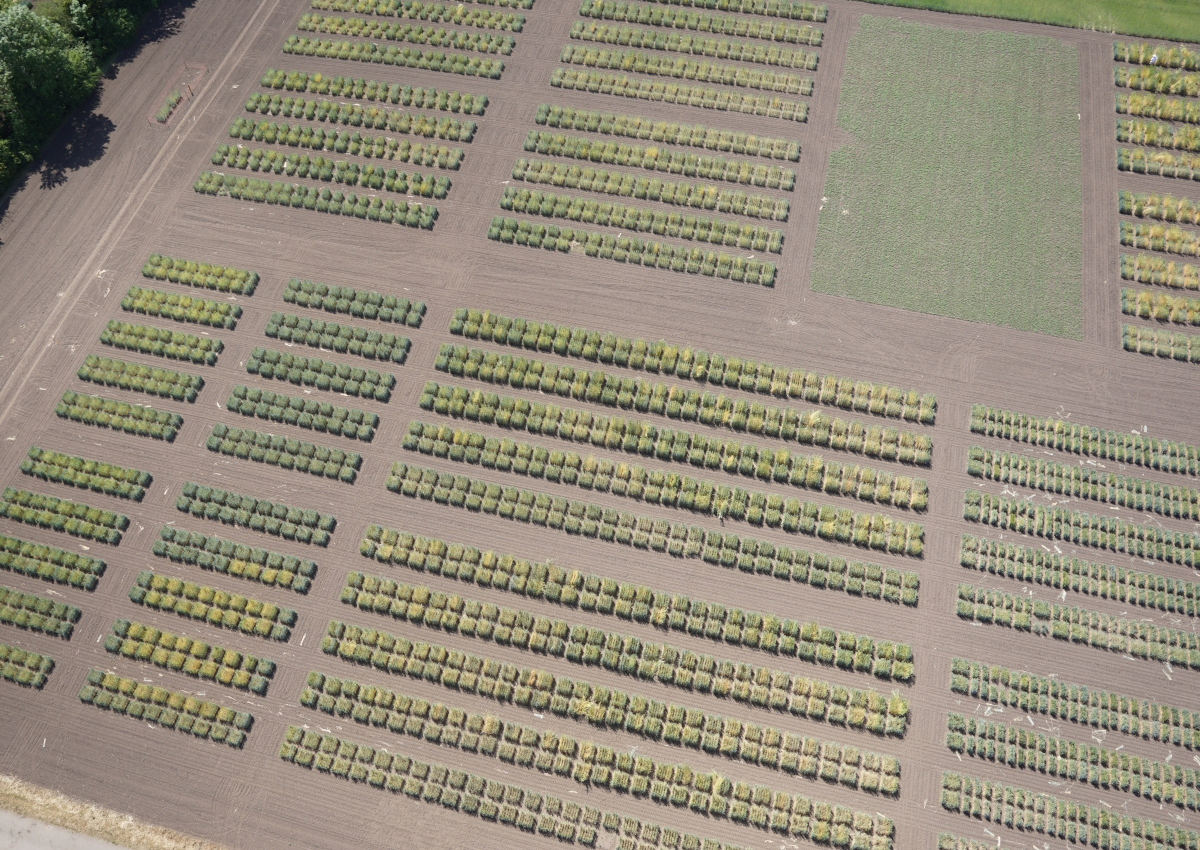
Old and Exotic Varieties Produce New Genetic Variation for Wheat Cultivation
October 12, 2022| |
In the Federal Ex situ Gene Bank at the IPK Leibniz Institute in Germany, 150,000 old plant varieties are preserved. Aside from negative traits, old and exotic varieties possess many valuable gene variants that have been lost in modern varieties but may be crucial for plant breeding in the future.
The IPK Leibniz Institute's extensive collection of old wheat varieties was tested for their yield performance and resistance to yellow rust not only in the laboratory but also in field trials. Using an interdisciplinary approach involving plant breeders, plant geneticists, plant pathologists, and bioinformaticians, they succeeded in detecting new biodiversity from old varieties for yield performance and resistance to yellow rust infestation in order to use them for crop production. The researchers also used the results to develop bridging lines for wheat breeding from promising old varieties by crossing them with current varieties.
The performance of the resulting progeny surprised the researchers. They observed higher yields in some bridging lines as compared to important current elite varieties. Prof. Dr. Jochen Reif, coordinator of the consortium and head of the research group, is convinced that the biodiversity of the elite pool can be increased using a new valuable genetic variation of the bridge lines and it is of great importance to tackling the huge problems that climate change poses to agriculture.
For more details, read the news release from IPK Leibniz Institute.
| |
You might also like:
- CIMMYT Research Reveals Afghan Wheat's Rust Resistance
- Gene Discovery Transfers Rust Resistance to Wheat from Wild Relative
- Pocket K No. 60: Rust-resistant Wheat
Biotech Updates is a weekly newsletter of ISAAA, a not-for-profit organization. It is distributed for free to over 22,000 subscribers worldwide to inform them about the key developments in biosciences, especially in biotechnology. Your support will help us in our mission to feed the world with knowledge. You can help by donating as little as $10.
-
See more articles:
-
News from Around the World
- New Book Tackles Importance of GM Crops in Attaining Food Security
- FAO Calls for Collaborative Efforts to Address Global Food Crisis
- Scientists Discover Wheat Landraces with Resistance to Impacts of Climate Change
- Mexican GM Maize Ban to Cause Massive Losses in the Americas -Report
- Plants' Drought Response Now Uncovered
- ISAAA Spearheads Asian Recapping and Debriefing Workshop on CBD/CPB and COPMOP
- Euroseeds Releases Open Reply to European Greens on New Genomic Techniques
- EFSA Publishes Scientific Opinion on GM Oilseed Rape GT73
- Old and Exotic Varieties Produce New Genetic Variation for Wheat Cultivation
-
Research Highlights
- Improving Rice Photosynthesis and Yield through N Use Efficiency
- New Evaluation Tool for GM Biocontrol Products Proposed
- Insect Pest Genome Shows 49 Genes from Plants
-
Read the latest: - Biotech Updates (February 11, 2026)
- Gene Editing Supplement (January 28, 2026)
- Gene Drive Supplement (February 22, 2023)
-
Subscribe to BU: - Share
- Tweet

